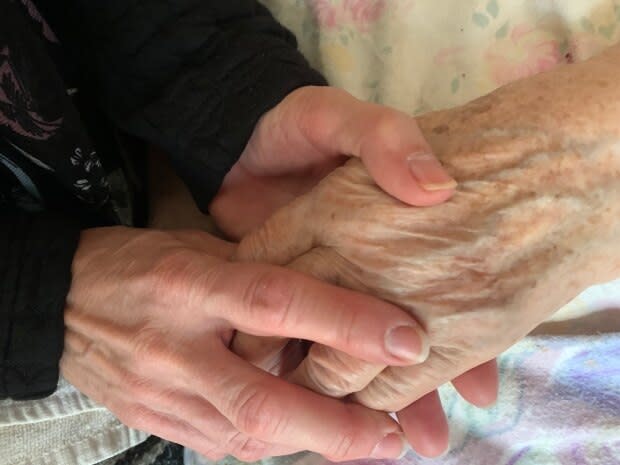Why was this 105-year-old woman's home care clawed back?
A 105-year-old who lives on her own in London, Ont., is wondering why her personal support worker's home care visits were cut back from three times a day to once a day.
Salomeja Pargauskas was born in Lithuania in 1914. In 1949, she fled to Germany when Russians threatened to send her family to Siberia. In the early 1970s, she moved to Canada, eventually finding work on the province's tobacco farms.
She's outlived two husbands and her children, but she wants to remain in her home in London's Westmount suburb.
But she may not get her wish after the Local Integrated Health Network (LHIN) cut back her personal support workers' hours because, they say, she already has a caregiver to help her.
Pargauskas' struggle is emblematic of a chronically underfunded home care system and a shortage of personal support workers which has made the situation even more dire, one politician says.
"It's absolutely unacceptable and frankly, appalling, that this woman's services are being reduced just because she has a friend who is willing to come in and shoulder some of the burden of caregiving," said NDP MPP Peggy Sattler, who represents the riding of London West, where Pargauskas lives.

Pargauskas has survived cancer and has severe arthritis that have left it very difficult for her to use her hands for detailed tasks such as taking her medication.
But she is able to get off her bed and chair, watch television, and eat her meals alone. Until this weekend, a personal support worker came to see her three times a day, in the morning, at noon, and in the evening, to help her take her medication. The PSWs also sometimes helped Pargauskas heat up her meals.
Those meals are prepared by a friend who used to be Pargauskas' PSW, but has since changed jobs. The two have remained close.
The friend, who doesn't want her name used because she is worried it might affect her job prospects, buys Pargauskas' medicine, helps her get to the doctor, and checks in on her. She also prepares meals so the assigned PSW can just heat them up.
She has learned to say "I love you" in Lithuanian, and the two share a comfortable rapport.
"It's not fair that they say, 'You're coming to help Salomeja, so we are going to cut back her care. The reason why I am coming is because her care is so lacking and inconsistent in the first place," the friend said.

Pargauskas' grandson has been trying to get to the LHIN to reconsider his grandmother's level of care since it was clawed back on the weekend.
CBC News reached out to the Ministry of Health and the LHIN about Pargauskas' care.
A representative for the LHIN said care plans are developed "based on a standardized assessment tool that considers a person's functional needs and preferences, and the levels of support they already have in place."
The LHIN said care coordinators work with patients and caregivers to develop care plans that "best meet ta patients needs."
Sattler says it's not uncommon for home care patients to contact her office for help.
"Home and community care have really been underfunded for years and the problem as recently been exacerbated by a shortage of PSWs, so we have a system that already was not funded to provide the support that people need to remain independent in their homes, and now we have a labour shortage," Sattler said.
"I hear frequently from people who are concerned about cutbacks to the home care they are receiving, the lack of consistency regarding the staff of the people who come to their homes, and the number of services people are getting. If we don't fix this, this will mean more people in emergency, in the alternative level of care beds in the hospital because there are no long-term care beds for them to go to, and eventually in long-term care homes even though that is a much greater cost to the system."
Sattler urged Pargauskas' grandson to reach out to her so she can see if she can help.
The provincial government unveiled a plan Tuesday to change how publicly funded home care is provided across Ontario, aimed at making it easier to have home care needs assessed and resolve confusion. If passed, a key part of the legislation would allow 4,000 nursing staff known as "care coordinators" to work from hospitals or family doctors' offices.


